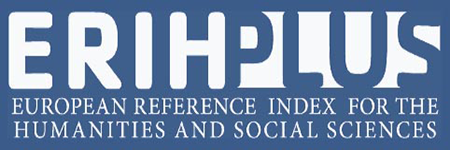Archives - Page 5
-

Contextual lessons and practices of public management in Central America
No. 68-69 (2015)The Central American Institute of Public Administration, ICAP, has been stimulating and promoting a strategy aimed at generating Central American knowledge in public administration and Central American integration. To this end, it has implemented a series of actions to share and socialize the knowledge produced in the region. Thus, issues 68 and 69 of the Central American Journal of Public Administration, ICAP's Journal, are noteworthy for their contents and especially for their lessons learned for the application of knowledge in governmental activities. Three main types of lessons regarding the introduction of changes in public management and governance can be identified in this issue.
a) Recent analyses of the immediate environment of Central American public administration suggest the need to move from rational legal public management to governance of citizens' rights, with a focus on the State's response not only to the needs of the population, but also to the fulfillment of citizens' rights. Likewise, the environment of the Region has been shaping a democratic society with large gaps, different from the authoritarian and non-democratic society of some decades.
b) Quantitative and qualitative assessments that measure and record significant events with respect to certain innovations and policies adopted by governments, such as anti-corruption strategies, e-government, e-participation, etc. as shown in the Figures section of this Journal.
c) Good practices and systematized experiences in Central American public administration, as a result of the implementation of policies, programs, projects, activities and actions aimed at both strengthening the image of public administration through the recognition of outstanding initiatives in the governmental sphere, and improving the performance of the public sector through the replicability of good practices, stimulating the search for innovative solutions. These results are an indication of the generation of knowledge in the Region, in the field of public administration, and constitute a potential to trigger a process of production, reproduction, appropriation and accumulation of knowledge, so that it can be applied to any field of life and human activity, efforts that ICAP makes available to the scientific and academic community, professionals, government and civil society in general, in the Region.
-

Central American Integration Actualities: Experiences and Perspectives.
No. 66-67 (2014)In the early 1990s, a time of pacification and national and regional reconciliation, Central American integration broadened its conception, defined its principles and changed its institutional scheme, moving from the Organization of Central American States, ODECA, to the Central American Integration System, SICA, based on the Regional Treaty "Protocol of Tegucigalpa" of 1991, signed and ratified by all Central American countries, laying the foundations for a second era of Central American Integration. This Treaty stipulates, among other things, the creation of two subsystems: economic and social and sixteen specific sectors, giving rise to the emergence and creation of a series of regional organizations that gave organic structural content to the Central American Integration Treaty, promoting both the development of new entities and the widening of the regional institutional framework.
Twenty years after these events, SICA has been gradually and multidimensionally institutionalized, and with it, the Central American institutional bodies, whose institutional dynamics, embedded in the contextual challenges, has outlined the incorporation of management, little by little, to fulfill its mission and raison d'être, developing and making explicit a series of management instruments: policies, plans, programs, projects, etc., allowing to share the basic developments that have been generated in this regard, enriching and promoting knowledge management.
A stop in this work developed by this institutionality is shown in issues 66 and 67 of the Central American Journal of Public Administration, published by the Central American Institute of Public Administration, ICAP, dedicated to the topic of "Current Issues in Central American Integration: Experiences and Perspectives", which includes in its five sections, a set of concerns and identification of challenges, as well as the systematization and explanation of Central American thought applied to the reality of the region, illustrating lessons learned as well as good practices, case studies, models, etc.
ICAP is pleased to make these updates available to the Central American community of universities, government, regional institutions and civil population, with the purpose of disseminating knowledge and at the same time, encourage reflection and generation of regional thinking in public administration and Central American integration.
-

Central American Public Management: Modern Perspectives.
No. 65 (2013)Societies in general have undergone important transformations during the last decades, changing not only people's way of life but also how their governments act, affecting the attention that should be paid from the governmental agenda to new demands and repeated problems such as: a) the consolidation of democracy; b) the strengthening of economic growth; and c) the reduction of social inequality.
These deficits in national development, which are also an expression of the performance of governments, have been the subject of governance as an approach that concerns society, national authorities and modern public administration and management. Thus, a minimum capacity for effective and efficient management by State administrations is associated with the notion of governability and governance, in which the public service becomes a strategic actor in the new modern perspective of public management that is taking shape.
Hence the importance of implementing excellent public management, which must take into account the particularities of the public sector, such as the complex nature of users and the regime of public employees, but also current aspects, such as a new definition of the public space and its respective alliances with new actors, relations with knowledge agents, innovation and continuous improvement in the administrative activity itself and the corresponding citizen participation, both in decision-making processes and public policies as well as in the management of the administration.
These conjugations of modern perspectives of public management and of increasing improvement of governance and governability of public institutions, constitute a continuous challenge of public administration and should be a priority for political and governmental managers, whose fundamental purpose is the promotion and guarantee of the principles and values of public service, which in turn, result in the strengthening and continuous development of democratic society.
Today, in this issue, the Central American Journal of Public Administration, ICAP Magazine, offers its readers some of these facets of Central American public management, a space that allows discussion regarding the daily work, to review it and improve institutional capacity, in order to generate proactive initiatives on transcendental aspects that contribute to the sustainable development of the Central American peoples.
-

Buenas Prácticas en la Gestión Pública
No. 64 (2013)In more than a decade of implementing State reforms, some of the following aspects have become a matter of consensus in the Central American Isthmus: (a) the strengthening of public sector institutionality; (b) the improvement of public organizations and service quality; (c) the optimization of public spending; (d) higher levels of accountability on the part of the public sector; (e) increased citizen participation in public management and in general; (f) the need to better reconcile the market and the State; and (g) the adaptation of the public sector and the administrative apparatus to meet new demands.
The lessons learned in this modernization process in the area of public management indicate that the greatest difficulties in achieving success in the aforementioned initiatives lie in how to do, rather than in what to do, particularly due to the practical aspects of public management, with a growing interest in the exchange of successful experiences, also known as "good practices".
A good governmental practice is an experience, an activity, a process that has been successfully carried out by a public entity. It is characterized by: a) having had measurable, concrete and systematized results; b) these results have benefited the population; and c) it is replicable, awakening the interest of decision-makers to access proven experiences, given their orientation towards concrete and effective solutions.
In Central America in particular, there is the dissemination of good practices in public management, based on the competitions undertaken by public administrations in the areas of quality and public service, recognized and disseminated experiences that promote replicability, enabling the improvement of performance and a favorable environment for public administration.
Examples of these good practices are increasingly accessible and constitute references for continuous improvement and modernization of public administration, especially in some areas such as: quality in public services (education, health, etc.), user services, citizen complaint mechanisms, etc., and others such as performance indicators, evaluation, institutional planning, etc.
ICAP in this process of disseminating the development of certain processes or applications that have given good results, showing their relevance in the public management of the countries of Central America, Panama and the Dominican Republic, generates this issue of the Central American Journal of Public Administration, dedicated to the topic of Good Practices in Public Management.
-

Civil Service: access to information, transparency, accountability and social responsibility
No. 62-63 (2012)The globalization process has brought about a change of paradigms in different social, economic and political aspects in general. In particular, public administration has undergone transformations in the state apparatus and in management, constituting an agenda more oriented to the improvement of services, with great emphasis on the effectiveness of public policies, on the strengthening of the civil service, on the democratization of the governmental apparatus, with the objective of consolidating true citizenship.
The legacy of the Public Administration of previous years contrasts with the administrative reforms that took place recently to implement a new public management. Thus, with the democratization of public management, a greater control of the government's activities by the citizenry emerges, i.e., accountability becomes an obligation of the government. Likewise, the governing authorities are required to be transparent in their processes, which must be visible by disclosing both data on governmental activities and information concerning the individuals who hold different positions in government.
This new action is what is known as open government, which with the support of new information and communication technologies and appropriate regulations for access to information, has brought public management closer to citizen participation and the streamlining of processes for the delivery of goods and services to society. The issue of electronic government has positioned itself as one of the great advances within the public function, promoting the development of a society linked to the management of both information and knowledge, in an inclusive and comprehensive manner.
Social networks are also an important part of this updating process in public administration, because they are the means by which there is a fluid communication, receiving queries and responses, combining the notification of progress, and calls for citizen participation, bringing the administrative government link with civil society, promoting responsible actions in the proper management of resources and the proper implementation of public policies, always in favor of the development and welfare of the population.
ICAP as an institution at the service of the Region and in accordance with its Strategic Plan 2011-2015, presents in these issues the theme "Public Function: access to information, transparency, accountability and social responsibility", exposing different texts of experts who base their experience to exemplify the progress and challenges presented by the reality of the Region.









